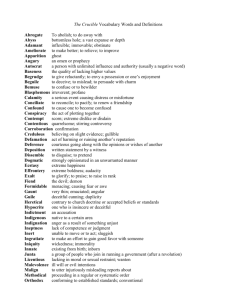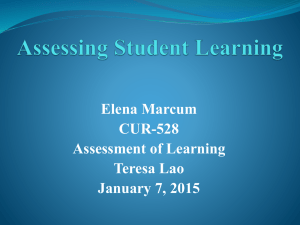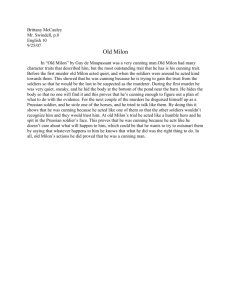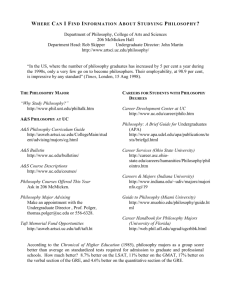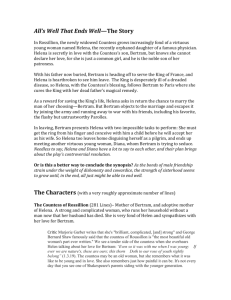The College of Liberal Arts and Sciences Undergraduate
advertisement
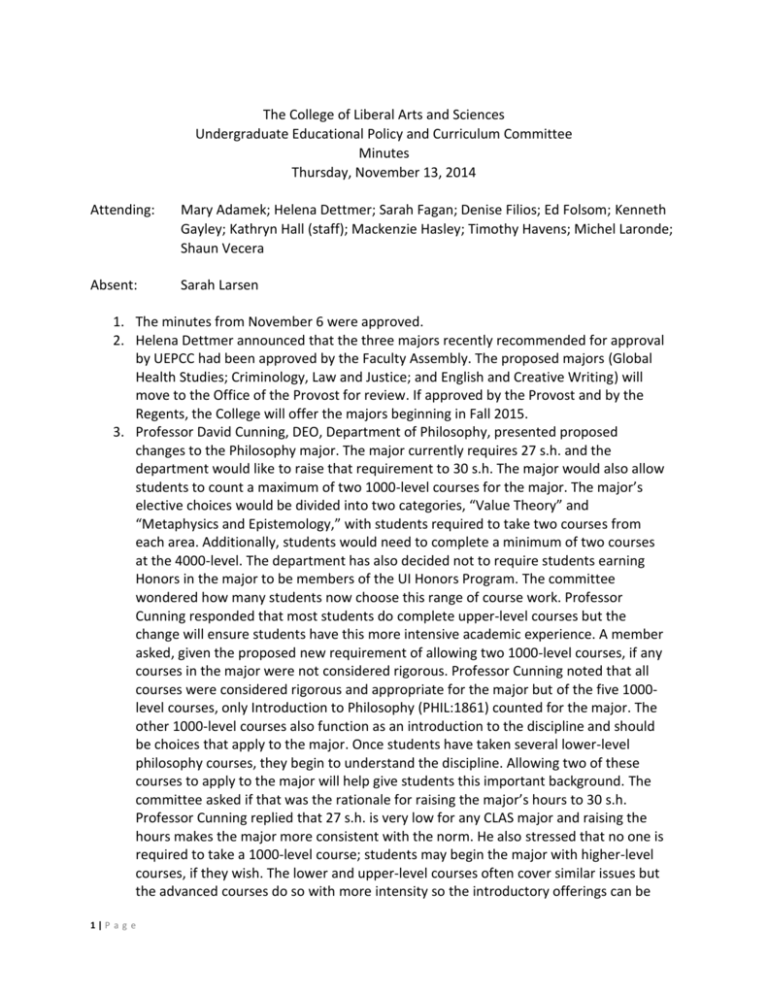
The College of Liberal Arts and Sciences Undergraduate Educational Policy and Curriculum Committee Minutes Thursday, November 13, 2014 Attending: Mary Adamek; Helena Dettmer; Sarah Fagan; Denise Filios; Ed Folsom; Kenneth Gayley; Kathryn Hall (staff); Mackenzie Hasley; Timothy Havens; Michel Laronde; Shaun Vecera Absent: Sarah Larsen 1. The minutes from November 6 were approved. 2. Helena Dettmer announced that the three majors recently recommended for approval by UEPCC had been approved by the Faculty Assembly. The proposed majors (Global Health Studies; Criminology, Law and Justice; and English and Creative Writing) will move to the Office of the Provost for review. If approved by the Provost and by the Regents, the College will offer the majors beginning in Fall 2015. 3. Professor David Cunning, DEO, Department of Philosophy, presented proposed changes to the Philosophy major. The major currently requires 27 s.h. and the department would like to raise that requirement to 30 s.h. The major would also allow students to count a maximum of two 1000-level courses for the major. The major’s elective choices would be divided into two categories, “Value Theory” and “Metaphysics and Epistemology,” with students required to take two courses from each area. Additionally, students would need to complete a minimum of two courses at the 4000-level. The department has also decided not to require students earning Honors in the major to be members of the UI Honors Program. The committee wondered how many students now choose this range of course work. Professor Cunning responded that most students do complete upper-level courses but the change will ensure students have this more intensive academic experience. A member asked, given the proposed new requirement of allowing two 1000-level courses, if any courses in the major were not considered rigorous. Professor Cunning noted that all courses were considered rigorous and appropriate for the major but of the five 1000level courses, only Introduction to Philosophy (PHIL:1861) counted for the major. The other 1000-level courses also function as an introduction to the discipline and should be choices that apply to the major. Once students have taken several lower-level philosophy courses, they begin to understand the discipline. Allowing two of these courses to apply to the major will help give students this important background. The committee asked if that was the rationale for raising the major’s hours to 30 s.h. Professor Cunning replied that 27 s.h. is very low for any CLAS major and raising the hours makes the major more consistent with the norm. He also stressed that no one is required to take a 1000-level course; students may begin the major with higher-level courses, if they wish. The lower and upper-level courses often cover similar issues but the advanced courses do so with more intensity so the introductory offerings can be 1|P a g e appropriate choices for students unfamiliar with the discipline. The committee then asked if it might be better to require these 1000-level GE courses as prerequisites to the higher-level courses. Professor Cunning responded that the department had discussed this possibility and that many philosophy classes already have appropriate prerequisites. The department is also making some changes to the minor but approval by the College is not required since those changes are considered “insignificant.” Some students pursue the minor first but then complete the major, and the allowance of the lowerlevel courses will help with this transition since the minor will also allow one 1000level course. After the guest left, UEPPC recommended the proposed changes for approval. [Note: The changes may now be entered in the General Catalog and implemented for Fall 2015. Continuing students may complete the requirements as indicated on their degree audit or may drop the former major and declare the revised major.] 4. UEPCC members discussed issues related to undergraduate affairs, suggesting topics to pursue during the spring semester. The discussion first focused on classroom space issues if enrollment grows, particularly the lack of space available for labs and the importance of the “wet” lab for the GE lab requirement. The committee also discussed how to make sure GE natural science courses continue to offer this lab experience, even if lab space becomes costly or not readily available. Helena Dettmer suggested a meeting with GECC, which oversees the GE requirements, to determine how to make sure the lab experience continues as currently required. Other issues were then raised, including COGS guidelines for TAs and how growth in class and section size will be accommodated. Some courses do not have TAs and if enrollments increase, that also might be an issue. The concern about the lack of large classrooms for GE courses was again noted as was the lack of proctors for exams in larger classes. It was mentioned that undergraduates or TAs from other areas could be used as proctors, but this has been tried and presents difficulties, including, for example, that undergraduates and graduate students need to take their own exams. The committee also asked that the Director of ESL be invited to update UEPCC on the ESL program and enrollment growth and requested an update on the Summer Hawk Tuition Grant. A member suggested that UEPCC should review newly approved programs of study after three years. It would be helpful to know if the programs are growing as expected and if they are accomplishing their goals. Helena Dettmer agreed, telling the committee that certificates already submit an annual report to her, which is very useful. 5. Helena Dettmer updated the committee on the three-year degree plans from CLAS (Communication Studies, International Studies, and Theatre Arts). Students interested in the three-year degree will be advised to complete their GE World Language requirement before entering UI and to transfer credits to UI (including AP credit) when feasible to help ease the pressure of completing a degree in three years. 6. The meeting was adjourned. 2|P a g e Respectfully submitted, Timothy Havens, Professor Department of Communication Studies and of African American Studies Secretary, Undergraduate Educational Policy and Curriculum Committee 3|P a g e
